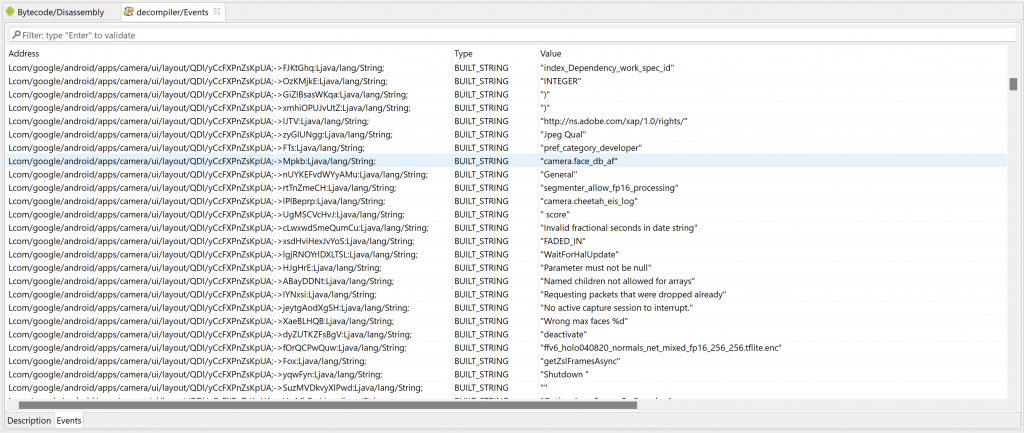This is part 2 of the blog that introduced the major addition that shipped with JEB Pro 4.29: the ability for the dex decompiler to call into the native analysis pipeline, the generic decompiler and native code emulator.
Today, we demo how to use two plugins shipping with JEB 4.30, making use of the emulators to recover information protected by a native code library found in several APKs, libpairipcore.so.
Recovering statically registered native routines
The first plugin can be used to discover native routines registered via JNI’s RegisterNatives. As a reminder, when calling a native method from Java, the JNI will see if exported routines with specific names derived from the Java method signature exist in the process. Alternatively, bindings between a Java native method and its actual body can be done with RegisterNatives. Typically, this is achieved in JNI_OnLoad, the primary entry-point. However, it does not need to; other techniques exist to further obfuscate the target call site of a Java native method, such as unregistration/re-registration, the obfuscation of JNI_OnLoad, etc. More information can be found here.
In its current state, the plugin will attempt to emulate a SO library’s JNI_OnLoad on its own, without the context of the app process it would normally run on. The advantage is that the plugin is useable on libraries recovered without their container app (APK or else). The drawback is that it may fail in complex cases, since the full app context is not available to this plugin. (Note that the second plugin does not suffer this limitation).
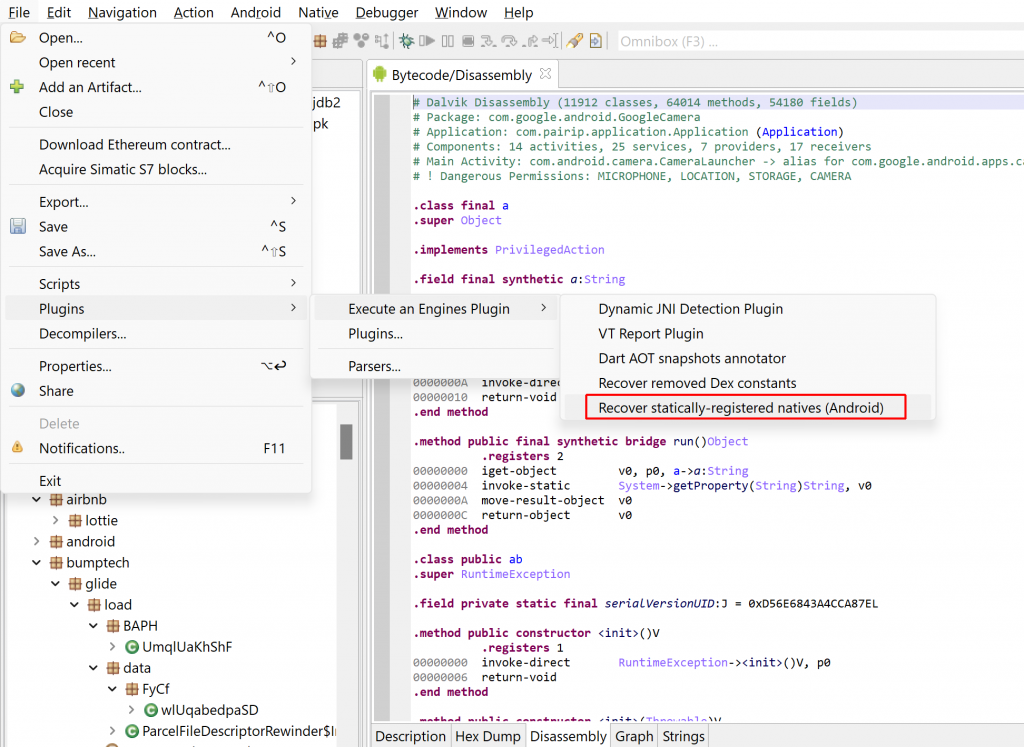
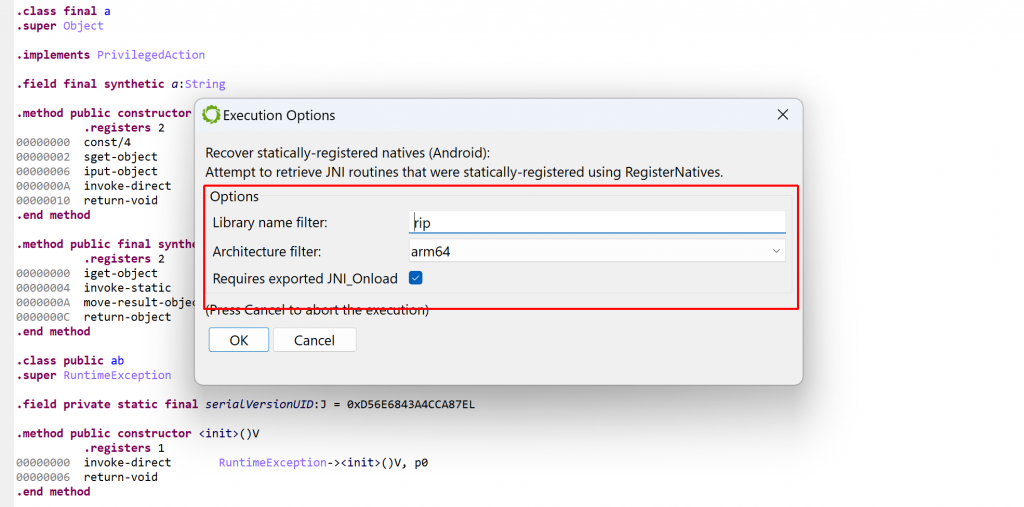

Recovering constants removed from the Dex
The second plugin makes use of an IEmulatedAndroid object to simulate an execution environment and execute code that may be restoring static string constants removed from the Dex by code protection systems.
We can imagine that the code protection pass works as such:
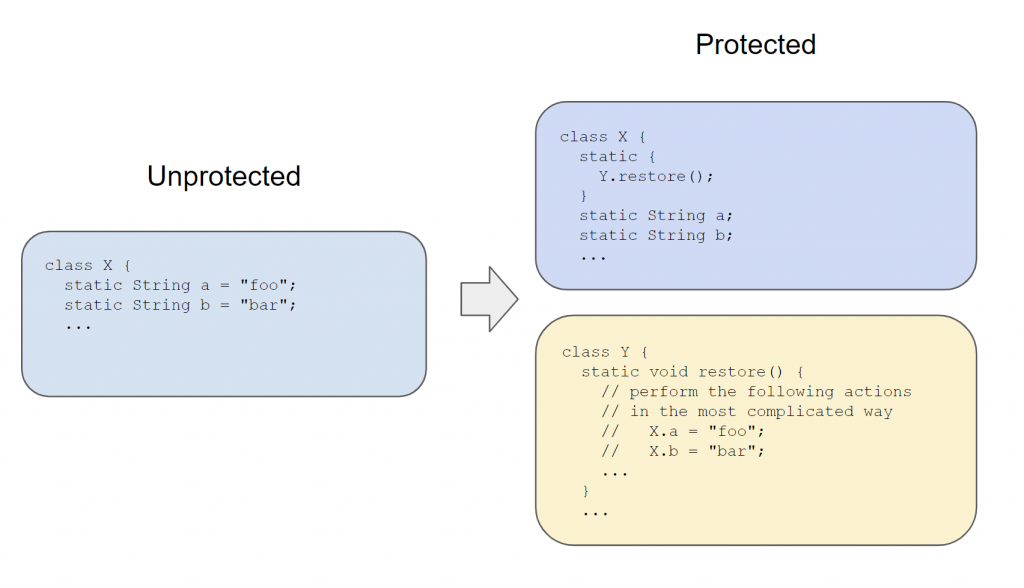
The implementation details of restore() are not relevant to this blog entry. In the case of that particular app, it involves calling into a highly obfuscated native library called libpairipcore.so.
The plugin requires a full APK. It will emulate a static method selected by the user and let them know about the constants that were restored.
The plugin workflow is as follows:

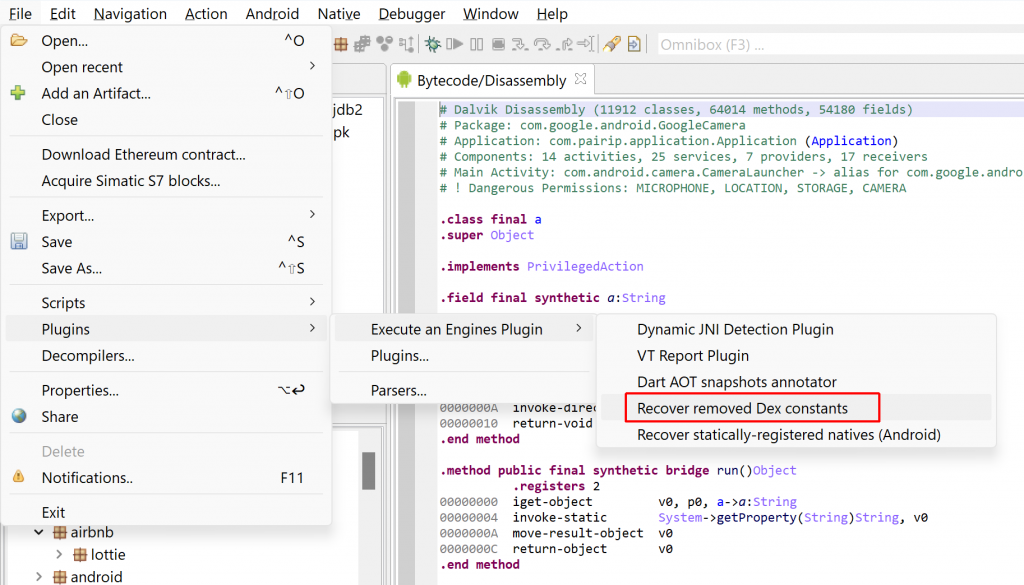
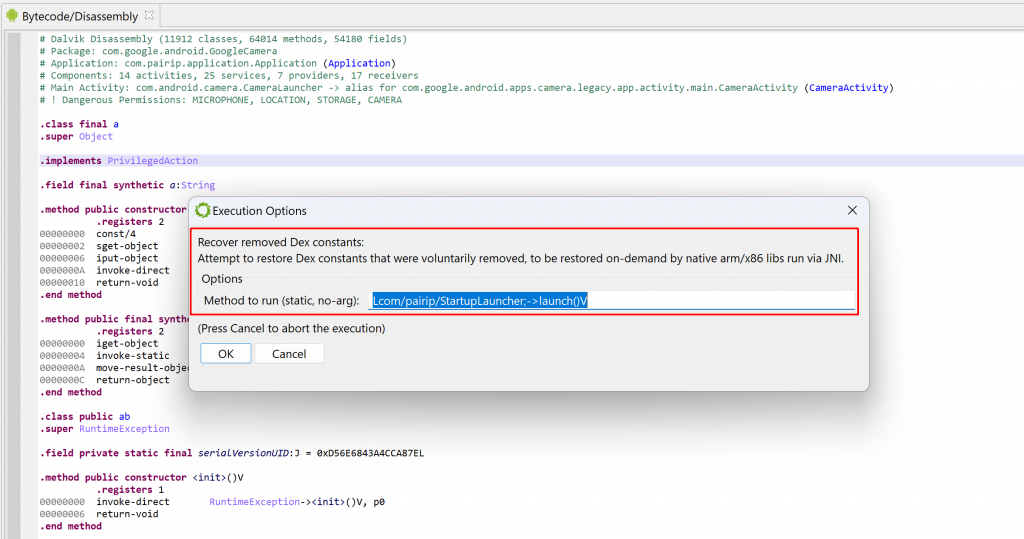
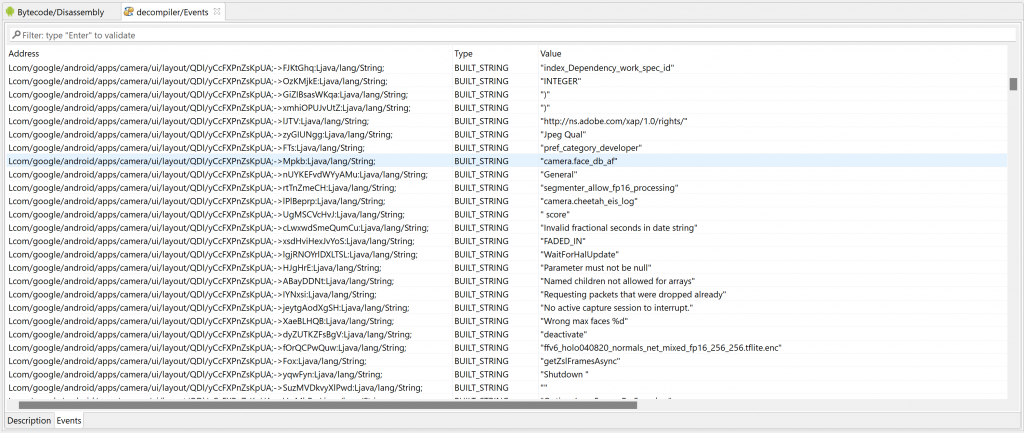
Conclusion
That’s it for today. Make sure to update to JEB Pro 4.30 if you want to use those plugins.
I would encourage power-users to explore the JEB’s API, in particular IDState, EState/EEmulator and IEmulatedAndroid, if they want to experiment or work on code that requires specific hooks (dex hooks, jvm sandbox hooks, native emu hooks, native memory hooks – refer to the registerXxxHooks methods in IDState) for the emulators to operate properly.
Until next time — Nicolas.
